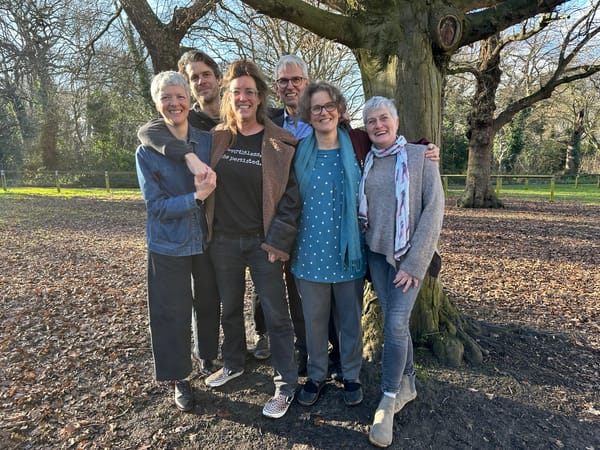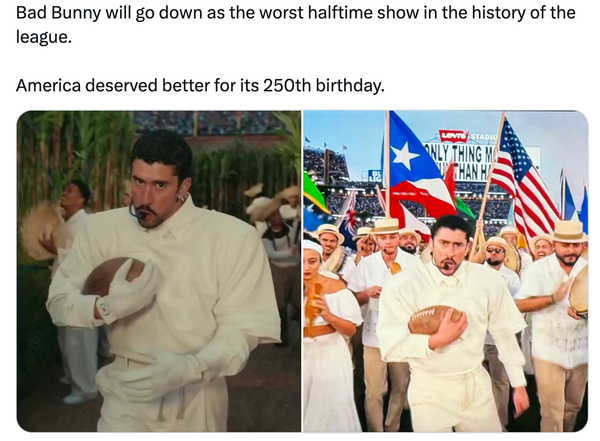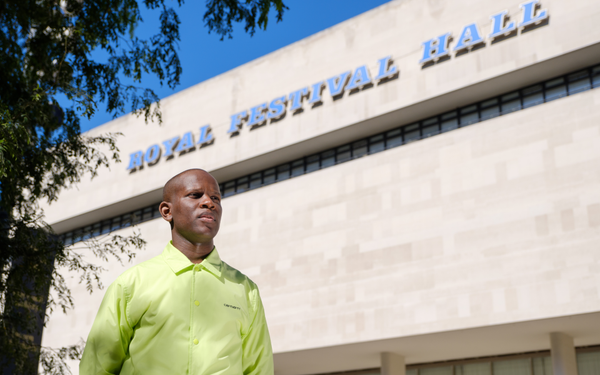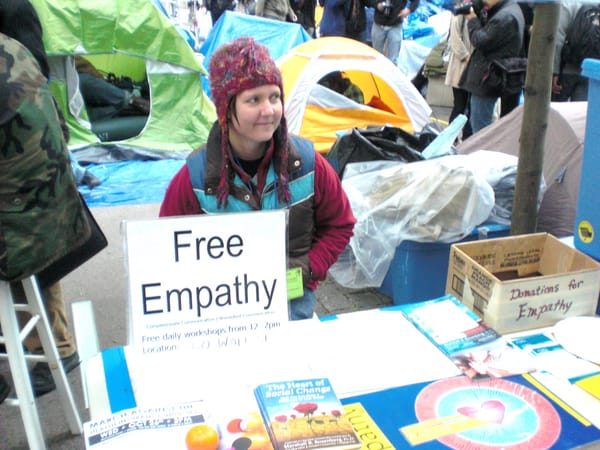Why a new age of ‘no-bullshit’ communication is shifting the political landscape
Step aside Donny and Nigel. It's time for the Zohran and Zack show.
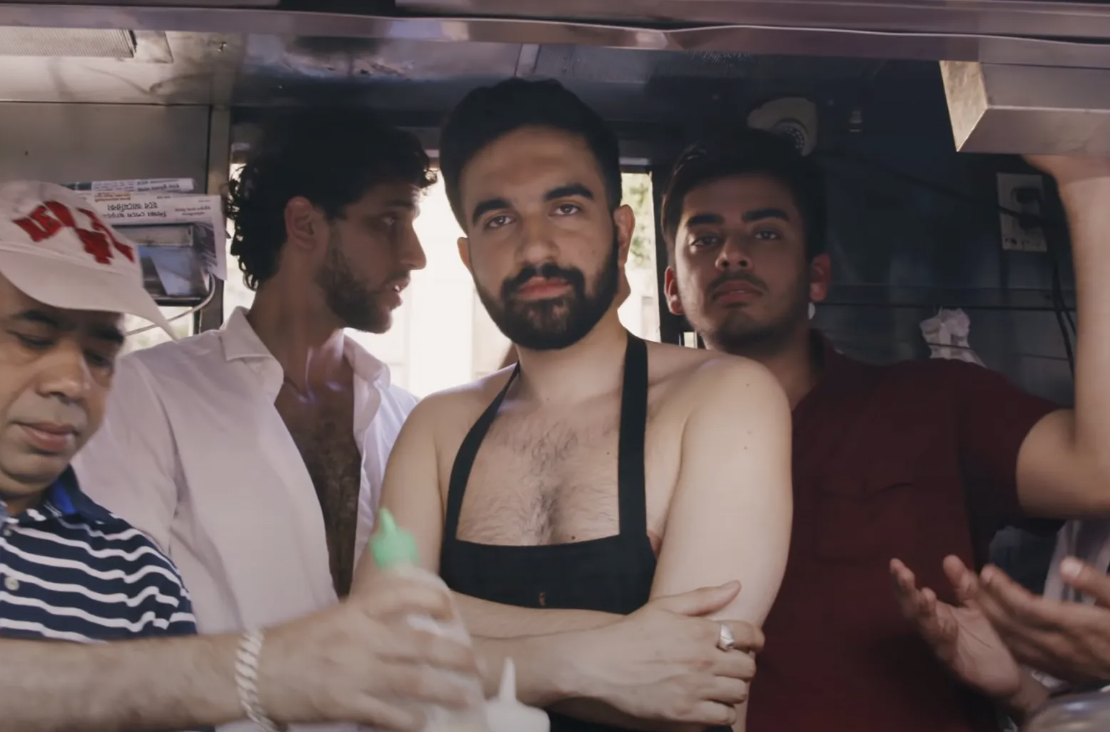
It might feel like the world has descended into a far-right fever dream. But as the political landscape lurches unpredictably, it looks like the tide is turning.
Gone are the days of the right-dominated airwaves, it seems, with their legions of media-savvy rabble rousers, free from suitable opposition. Here comes Zohran Mamdani, Mayor-elect of New York City, and Zack Polanski, new leader of the Green Party here at home, with their own scrappy communication style, capturing the public imagination and transforming the political conversation.
It’s hard to turn the tele on these days without seeing Polanski in his long parka jacket falling off one shoulder, piping up with a plucky one-liner like “The threat to our society is not arriving by dinghy or a small boat — they’re flying in a private jet.” At the same time, people the world over, from Paris to Gaza, are calling Mamdani “My Mayor”. But what’s the secret sauce that Zack and Zohran are bringing to the table and why is their message cutting through in a way that other progressive leaders haven’t?
Vision… finally!
“Finally!” cried millions on the internet when Mamdani and Polanski appeared. “Finally, someone who’s saying what I’ve been thinking.” “Finally, someone who’s willing to stand up for everyone, who looks and sounds like a real person.”
Finally, someone who has a plan to make the world better, a plan that puts ordinary people first, not billionaire shareholders.
After what’s felt like a lifetime, it’s as though millions of the politically homeless feel seen. Online, the mood swings between euphoria and traumatised relief. Politicians running on a message of unapologetic inclusion and hope… surely this can’t be real!?
No wonder. For decades we’ve only been offered a tasteless variety of political bullshit: either evasion as communication, where politicians speak in circles or avoid answering altogether; or how about staged, consultant-polished authenticity (aka Wes Streeting’s recent response to the Starmer vote-of-no-confidence news, or any of Starmer’s dead-eyed speeches, in fact); and of course there’s the “flood the zone” bullshit-as-strategy approach designed by Steven Bannon to get Trump elected, a strategy we’re now seeing Nigel Farage play out on the regular.
The night after Mamdani’s win, many Democrats, still unwilling to give him an inch of credit, reduced his win to an “anti-Trump vote”. Although there might be some truth in this, such framing completely undermines what Mamdani achieved. Zohran didn’t win because he was anti-Trump; he won because he is the antithesis of Trump, because he campaigned on an economic message that stood proudly with immigrants and minorities and against the billionaire class that Trump is a part of. The man had a vision, and to claim anything different is clutching at straws.
Similarly with Polanski: rather than focusing on doom-scrolling politics or repeating how terrible everything is (a habit the Left often falls into), he is leading with a bold, solution-based attitude. He’s painting a picture of a future that actually feels within reach: a fairer, better future for everyone, funded not by squeezing more out of ordinary people, but by making billionaires pay their fair share. It’s exactly the kind of visionary leadership people are hungry for.
No-bullshit
But it isn’t simply the content of what they say. How they are saying it matters too.
At a time when our feeds are awash with fake news, people are desperate for authentic messengers. We want our politicians to be relatable, the kind of people you could have a pint and some craic with. This, of course, is where the right have excelled for years. Both Trump and Farage have positioned themselves firmly as your average geezers, always up for a good ol’ night out with the lads and who will tell it like is. Farage practically built his early persona at his local pub. And let’s not forget Boris Johnson on Have I Got News For You, which arguably helped the Tories stay in power for years to come.
Their ability to weaponise social media to tap into people’s anger and steamroll through political norms has gripped the world. But they’re the used car salesman version of authentic only, insisting they’re just like us while selling us a steaming pile of bullshit.
And truth is the holy grail for ordinary people; no one wants to be lied to. So, honesty is crucial, but people are also sick to death of highly polished, robotic commentary, and politicians unable to give a straight answer to the most basic questions.
The public want real people representing them, not career politicians. People who will fight for us. Or as one New York taxi driver put it referencing a time Mamdani had joined the New York Taxi Workers Alliance drivers to protest crushing debt from taxi medallion loans, “I would put my life on the line for him, because he put his life on the line for me”.
Unapologetically yourself
Mamdani resonates because he hasn’t built a persona – he is unapologetically himself. Whether it’s a sharp one liner (“It’s pronounced cyclist!” he shot back at a heckler who called him a communist, when cycling through New York), his now iconic rap videos, or campaign branding inspired by New York bodega signage, he shows up for voters as what he is: a real New Yorker, just like they are.
Cultural references and a few jokes between manifesto promises, these guys make politics less something you need a glossary for and more a conversation we can all chip into. A case in point, Zack Polanski on Channel 4’s The Last Leg a few weeks ago practically doing stand up. He had the audience in bits when he said he would cast Nigel Farage as climate change in a movie because he’s “full of hot air anyway”. It’s this mix of clarity, comedy and zero pretence that makes their message land with those who might be tuned out of politics.
What makes these men different to your average politician is their natural ability to say big things in simple, everyday language. They bin the jargon and Westminster-speak and talk like actual humans, using more story-telling and emotion rather than data points and policy white papers.
This ‘no-bullshit’ approach to communications is what many have been craving; an approach that isn’t funded by the fossil fuel lobby, and that isn’t afraid to give straight, off-script answers. In a now viral clip after Polanski was interviewed on Sky News the week of Mamdani’s win, the news anchors seemed genuinely jubilant that he gave them sharp, unscripted answers to their questions. It turns out even established journalists are craving authenticity.
Using the Race Class Narrative
Authenticity with a vision is one thing, and a good, necessary thing. But there’s also more strategy at work here too. Both Zohran and Zack are using the Race Class Narrative framework, a communication strategy which shows that speaking to both race and class in our messaging is crucial to win over the majority of people. After years of culture-war tactics, left-wing circular firing squads, nuance being flattened by identity politics, and a cancel culture that’s turned natural allies against one another, this deeply researched and tested method, which has worked in pockets across some campaigns but has never really reached national momentum and impact, is now finally breaking through the noise.
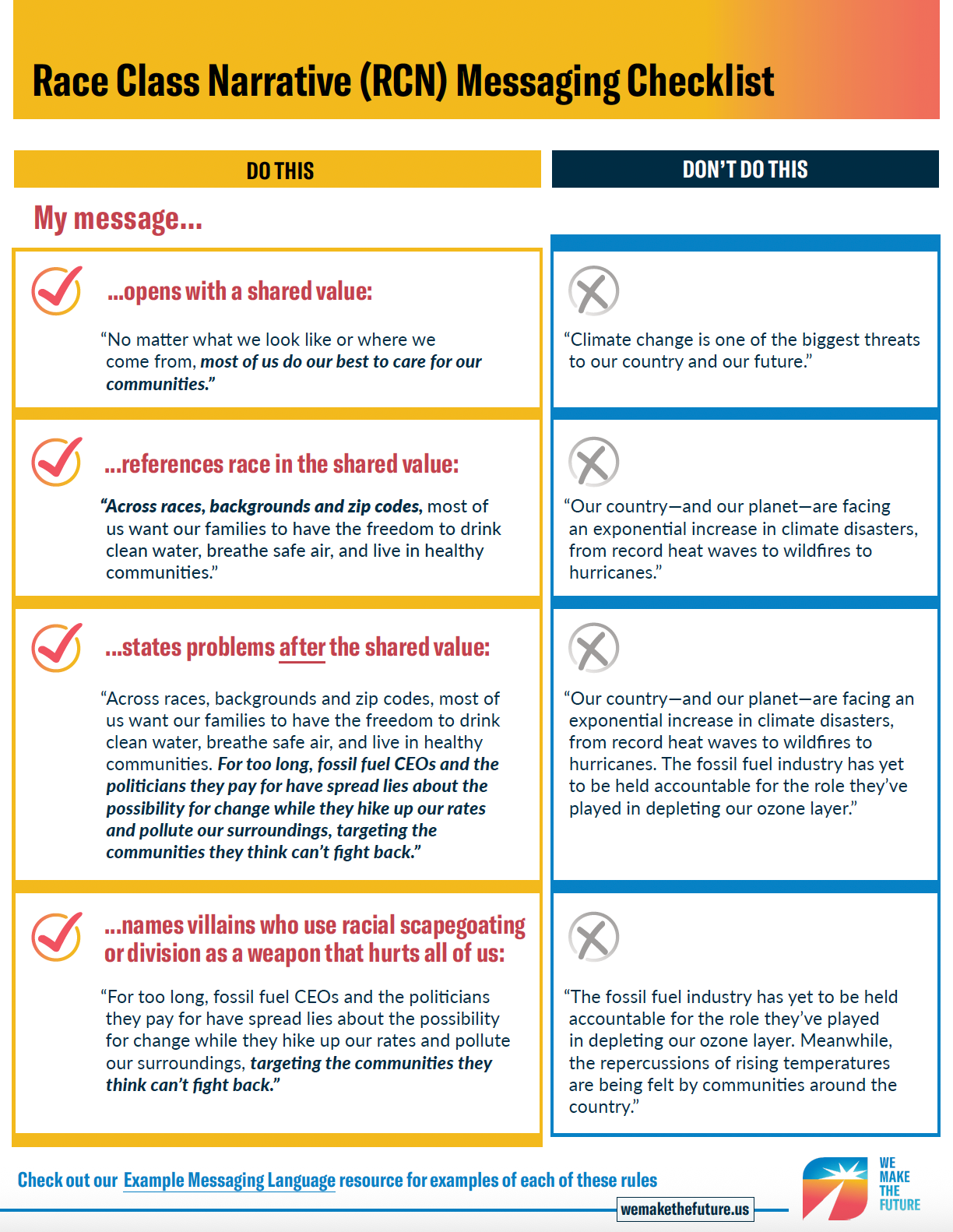
The Race Class Narrative project was spearheaded by Ian Haney López, a law professor at UC Berkeley in the US, who specialises in race and racism, and his colleagues, the author Heather McGhee and political strategist, Anat Shenker-Osorio. We had the pleasure of speaking with Haney López on a few occasions during our time at Extinction Rebellion, our Nuala even collaborating on a piece with him in the Ecologist. His work has also been developed here in the UK by New Economic Organisers (NEON).
The framework states the following three core insights:
- Discuss race overtly.
- Frame racism as a tool to divide and thus harm all of us.
- Connect unity to racial justice and economic prosperity.
The work of Haney López, Heather McGhee and Anat Shenker-Osario shows that messages mobilising around the connections between racial divisions and economic hardship can shift the majority of people. Rather than a focus on identity as difference, arguing over who’s worse off, the race class narrative argues that the strongest messages are those that speak to universal human values that we all share and can find common ground, such as, “No matter where we come from or the colour of our skin, we all want to work hard to support our families.”
But it also makes it crystal clear: you don’t win majority support by tiptoeing around racism. You win it by standing firmly against it. Haney López has said that messaging must include:
“a focus on racism, not as a white problem, but as a weapon of the rich and powerful. Framing racism as a divide-and-conquer tactic means it threatens not just black and brown people, but white people as well. It means that all of us need to come together to fight dog-whistling and build cross-racial coalitions to stand up to moneyed interests that seek to use race to divide us.”
The data backs this up. When you call out racism as the divide-and-conquer tactic it is – creating distrust, undermining belief in government, and driving economic pain for every person of every colour – you can build genuine solidarity across race and class.
Or, if you simply parrot the far-right, you lose elections.
I’ll just leave this here. pic.twitter.com/zwlfe7gaQ2
— Clive Lewis MP (@labourlewis) November 18, 2025
Champion solidarity
An example of how one without the other can go horribly wrong recently is a video Gary Stevenson made where he stated he would not call Reform voters racist. While much of Gary’s argument makes sense – that a lot of Reform voters have similar economic concerns as the rest of us, and calling them racist won’t win them over – to many, he sounded a lot like he was arguing for not mentioning racism at all.
What Gary misses here is that Nigel Farage and Reform use racist dog-whistling strategically, and are pushing racist policy that harms Black, Asian and other non-white people, to intentionally divide working people for their own personal and political gains. Not to mention, from all the allies they have a lot more in common with than the millionaires and billionaires who Farage really serves.
Both Zohran and Zack are using this race-class messaging method to champion solidarity and show they aren’t afraid to stand with all oppressed peoples, whether they’re immigrants, Trans people, striking workers, disabled people, or Palestinians. In fact, by doing so only makes them stronger.
Needless to say, regardless of whether you’re all-in on Zack and Zohran’s politics or if you’re reserving judgment, it’s refreshing to have new voices with new ideas capturing the air waves. None of the bullshit – just straight up, authentic storytelling and honest ideas to inject some inspiration into the public conversation. Hopefully, there’s many more like them to come. We need an army of communicators with the confidence to do what they’re doing.
Join the audience!
At Good Neighbours, our livestream for the arts and culture movement next Friday. Come join in the live audience or watch online.
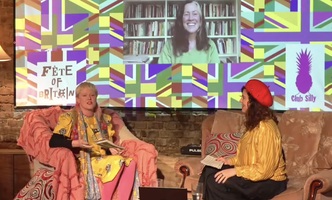
Why we go elsewhere in Absurdity...
And it isn’t even party season yet (or is it, and we didn’t get invited?). As a gentle reminder, we don’t add these bits at the end of our newsletters to boast or brag that we’re ‘so well connected’ or invited to everything. We add them as a reminder – mostly to ourselves – that The Network is the Strategy in this age of rebuilding, and sometimes re-brokering, the relationships that neoliberal capitalism and the ‘age of bullshit’ has tried to destroy. Because it is relationships, camaraderie, kindness, and willingness to work together, that is the strength they cannot overcome. We don’t need to fully merge who we are or what we do in these relations (a trifle is our favourite metaphor). But we are always, as our friend Charles Landry said to us this week, a “movement in the making”. And perhaps a movement in the re-making from the decades of our unions, networks, solidarities and societies being attacked by those who want to isolate and divide us so they can continue to hoard wealth and power. It’s why we join the dots between race, class, climate, poverty and people too, as in this piece from Alanna above, and wherever we go as we work to strengthen our relationships with allies, such as:
- Of course, the big event was our team down in Bristol for The Fête of Britain x Rough Trade, a brilliant celebration of music, community, zines, and making connections, well done to Sophie and Maddy;
- Charlie went and joined the Compass conference and AGM on Saturday, with a hundred others from across the progressive political space to discuss building a good society;
- Alanna and Clive were visiting our friends at Not Here to Be Liked talking about amplifying the work of our speaking agency Speak Up;
- Clare was out and about, teaching at Goldsmiths University, and on panels discussing populism and our friend Josh Appignanesi’s new film Colossal Wreck, about the mess of COP — you can also follow Clare’s Constructive Programme and interviews with spiritual leaders on her substack;
- Charlie and Alex joined our friends at DASH Arts for the launch of their new series We Are Free to Change The World at Toynbee Studios, featuring brilliant contributions from Bishi Bhattacharya, Lehni Lamide Davies, Carole Cadwalladr and Sam Lee.
- And Charlie continues his streak (47 nights out and counting!) this Friday as he goes to see Jan Woolf’s play Porn Crackers.



